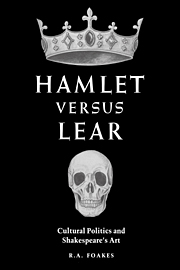Summary
PROCESSING SHAKESPEARE
An analysis of the reception of the play Hamlet over the past 200 years shows that Hamlet himself has been the main focus of attention; that he has often been extrapolated from the play as if he had an independent existence, and has usually been seen as a failure, an embodiment of Hamletism. By the early nineteenth century Hamlet was privatized, turned into a projection of each of us, and opened up to a democratized range of interpretations; but in the mainstream of writing and criticism in that century he became a mirror in which the bourgeois subject saw himself or herself reflected as intellectual, aesthete or artist and as ineffectual or politically marginalized. Hamlet was, in effect, appropriated to fit the image of such figures, and his problems were translated into those of the critics of the age. Hamlet became modern man, and efforts to return him to a Renaissance context have met with little success. By contrast, the reception of King Lear until about 1960 shows a predominant emphasis on personal relationships, centred on the reconciliation of Lear and Cordelia as the key moment in the play, and treating Lear as an awesome figure, to be associated with remote and primitive times, and as quite removed from any immediate political or social relevance to the critic's own time.
- Type
- Chapter
- Information
- Hamlet versus LearCultural Politics and Shakespeare's Art, pp. 78 - 111Publisher: Cambridge University PressPrint publication year: 1993



